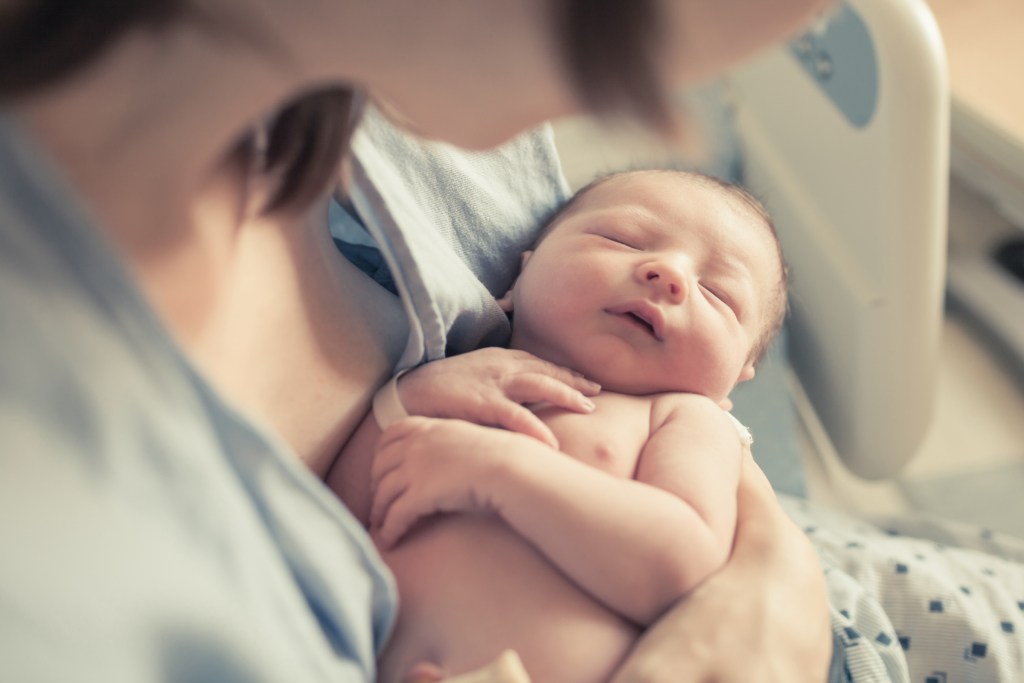Having a newborn is nothing easy. Luckily, there are a trove of online resources that are designed to make the newborn stage at least a little bit easier on new parents. One of these is the Baby’s First Test website. This helpful hub of information helps new parents learn about newborn screening, what to expect during the newborn screening process and what steps to take depending on what that screening process reveals. And if you thought you didn’t need to worry about newborn screening until after you had the baby, think again. This is something you should consider before the baby is born, as it usually impacts your baby during the first few days of life.
Here’s everything you need to know, and what the Baby’s First Test website can do for you.

What is newborn screening?
First things first — what is newborn screening? If you’ve yet to learn about this state-ran public health service, it’s essentially a testing process that begins while your baby is still in the hospital. Using a small blood sample and typically a hearing test, the screening process looks for certain diseases and conditions that are identifiable in newborns, to give your baby the best chance at the healthiest life possible. Newborn screening differs from state to state, but most states screen for more than 30 different conditions, and screening occurs automatically in United States hospitals when you give birth unless you choose to opt-out of the process for religious reasons.
The Baby’s First Test website breaks down the entire screening process for you, so you know exactly what to expect and what will happen to your baby during the process, as well as what happens to the procured samples.
What happens after a screening?
After a screening, your baby’s results will only be reported back to you if there’s something abnormal about the results. So, if you don’t hear anything back, don’t worry. Your baby showed no signs of any of the tested-for conditions. If you do receive a positive or out-of-range test result, it means that your baby is at high risk for having one of the tested-for conditions. It’s not a 100% positive guarantee that he does have that condition, however, and so follow-up testing is necessary.
In the event that your baby is diagnosed with a health condition based on her newborn screening, the Baby’s First Test website can provide you with resources for living with certain conditions, finding advocacy and support, talking to health care providers, finding specialists, planning for the future, and working with your insurance provider as needed.
How else can the Baby’s First Test website help me?
Beyond walking you through the newborn screening process, from knowing about the process ahead of time to knowing what to do after the screening process, the Baby’s First Test website can help you in other ways, too.
If you have a question about newborn screening, for example, that’s not covered through the website’s various resources, you can use the handy Ask an Expert feature to send a question their way.
You can also use the state search feature to see what your individual state offers during its screening process. For example, a quick look at New York’s newborn screening policies shows that the state currently screens for 60 conditions, ranging from maple syrup urine disease to hemoglobin disorders, endocrine disorders to cystic fibrosis, and hearing loss. Searching for your state also allows you to learn what exactly your state does with the procured blood samples.
The website likewise offers more resources for parents who may want to pursue additional newborn screening services to supplement the state-provided screening service.

Newborn screening is the first step toward your baby’s best, healthy life
Newborn screening is required in all 50 states for an excellent reason — it can help make sure your baby lives their best life, and help you to take the right steps, soonest, to keep your baby healthy. Learning everything you can about the process and being equipped with the right resources you need, in the event your screening comes back with an abnormal result, can further ensure you’re prepared for your baby’s first test.
Need more information about protecting your newborn’s health? Check out our articles on the best wraps to keep newborns safe and how to safely introduce your newborn to the family pup.


